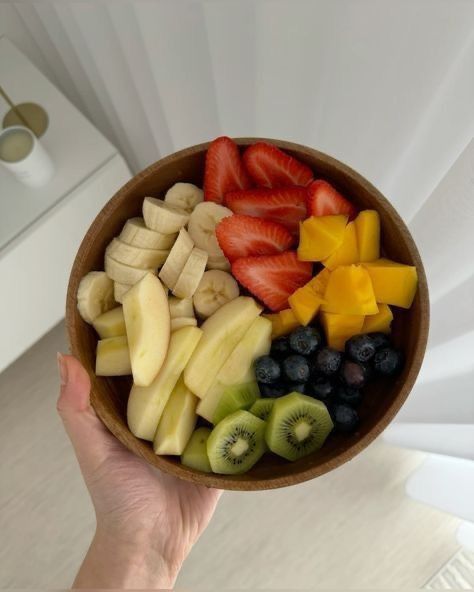The Ultimate Guide to Calorie Counting: Everything You Need to Know!

Introduction
Calorie counting is one of the most effective tools for managing weight, improving health, and making informed dietary choices. Whether you're trying to lose weight, gain muscle, or maintain your health, understanding how to count and manage calories can help you reach your goals.
In this guide, we'll break down what calories are, how to count them, myths surrounding calorie counting, and how nutritionists and dietitians can use this strategy to help clients.
📌 What Are Calories?
A calorie is a unit of energy that our body gets from food and drinks. It is used to fuel all bodily functions, including digestion, movement, and even breathing. The number of calories we need daily depends on various factors, including age, gender, activity level, and metabolism.
Macronutrient Breakdown of Calories
- Carbohydrates = 4 kcal per gram
- Protein = 4 kcal per gram
- Fats = 9 kcal per gram
- Alcohol = 7 kcal per gram (not essential for the body)
📊 How to Calculate Your Daily Caloric Needs
Your daily calorie needs are determined by:
- Basal Metabolic Rate (BMR) – The number of calories your body needs at rest.
- Total Daily Energy Expenditure (TDEE) – The total number of calories you burn daily, including physical activity.
Step 1: Calculate Your BMR
A commonly used formula is the Mifflin-St Jeor Equation:
📌 For Women:
BMR=(10×weightinkg)+(6.25×heightincm)–(5×age)–161BMR = (10 × weight in kg) + (6.25 × height in cm) – (5 × age) – 161
📌 For Men:
BMR=(10×weightinkg)+(6.25×heightincm)–(5×age)+5BMR = (10 × weight in kg) + (6.25 × height in cm) – (5 × age) + 5
Step 2: Multiply by Your Activity Level to Get TDEE
| Activity Level | Multiplier | Description |
|---|---|---|
| Sedentary | 1.2 | Little or no exercise |
| Lightly active | 1.375 | Light exercise 1-3 days/week |
| Moderately active | 1.55 | Moderate exercise 3-5 days/week |
| Very active | 1.725 | Intense exercise 6-7 days/week |
| Super active | 1.9 | Highly intense training, physical job |
TDEE = BMR × Activity Multiplier
🍽️ How to Track Your Calories
Tracking calories requires awareness, consistency, and accuracy. Here’s how to do it effectively:
1️⃣ Use Nutrition Labels
- Check serving size, calories per serving, and macronutrients
- Be mindful of hidden calories in processed foods
2️⃣ Use Calorie Tracking Apps
Some of the best apps include:
✅ MyFitnessPal
✅ Cronometer
✅ Lifesum
✅ FatSecret
3️⃣ Weigh and Measure Your Food
- Use a kitchen scale for accuracy
- Measure liquids using measuring cups
- Compare homemade vs. restaurant portion sizes
4️⃣ Understand Portion Sizes
- 1 cup of rice = ~200 calories
- 1 tablespoon of oil = ~120 calories
- 1 medium banana = ~105 calories
⚖️ Calorie Deficit vs. Calorie Surplus
- Calorie Deficit: Eating fewer calories than you burn → Weight Loss
- Calorie Surplus: Eating more calories than you burn → Weight Gain
- Calorie Maintenance: Eating the same amount you burn → Weight Stability
📌 1 kg of body fat = 7,700 kcal
To lose 1 kg per week, you need a 7700-calorie deficit over 7 days (~1100 kcal/day).
🚀 Common Myths About Calorie Counting
❌ Myth 1: All Calories Are the Same
Not all calories are equal. 100 calories from vegetables provide nutrients, while 100 calories from soda offer only sugar. Quality matters!
❌ Myth 2: You Have to Count Calories Forever
Calorie counting helps build awareness but isn’t a lifelong requirement. Once you learn portion control, you can eat intuitively.
❌ Myth 3: You Must Eat 1,200 Calories to Lose Weight
Eating too few calories can slow metabolism, cause muscle loss, and lead to nutrient deficiencies. Sustainable weight loss is key!
🔬 The Role of Nutritionists & Dietitians in Calorie Counting
As nutrition professionals, we can:
✔ Educate clients on energy balance
✔ Help them track nutrients, not just calories
✔ Teach portion control & mindful eating
✔ Use calorie tracking as a tool, not an obsession
✔ Ensure they get adequate macronutrients & micronutrients
🔥 Final Thoughts
Calorie counting is an effective tool for weight management when done correctly. However, nutrition is more than just numbers. Focus on nutrient-dense foods, balanced meals, and healthy habits.
💡 Nutritionists and dietitians can guide individuals beyond calorie counting, helping them build a sustainable lifestyle rather than just tracking numbers.
What’s your experience with calorie counting? Do you use it in practice? Share your thoughts below! 👇
📌 TGNC – Empowering Nutritionists, Transforming Lives. 💚

